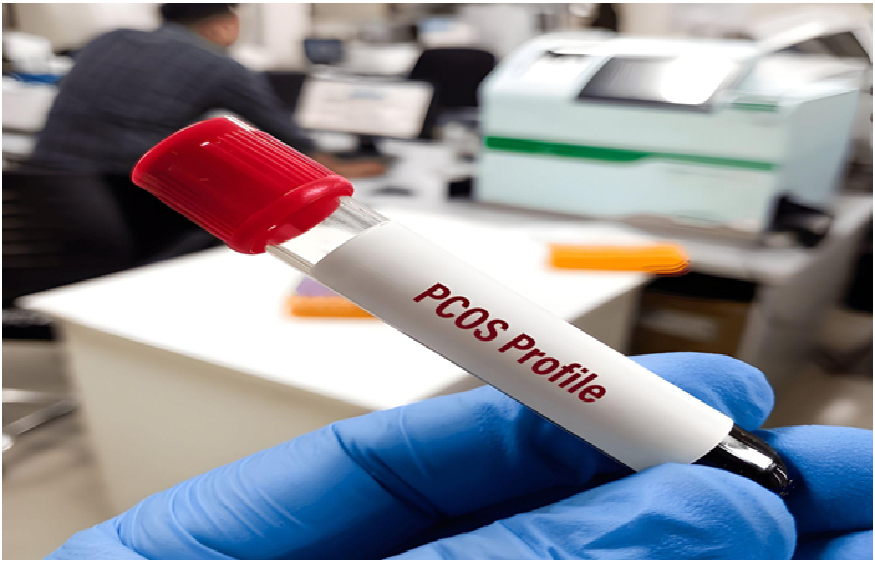
PCOS vs. PCOD – Know Which Is Worst?
Polycystic Ovary Syndrome (PCOS) and Polycystic Ovary Disease (PCOD) are two common yet distinct conditions affecting women’s reproductive health. Both terms are often used interchangeably, leading to confusion, but understanding the differences between them is crucial for diagnosis and treatment. Here, we’ll explore the difference between PCOD and PCOS, analyze which condition might be worse based on individual circumstances, and why visiting a top hospital in Gurgaon can prove to be the optimal choice in such a situation.
Understanding PCOD (Polycystic Ovary Disease)
PCOD, or Polycystic Ovary Disease, is a condition in which the ovaries produce an excessive number of immature or partially mature eggs. These eggs develop into cysts over time, leading to enlarged ovaries. PCOD is relatively common, affecting a significant percentage of women in their reproductive years. According to various studies, it is estimated that PCOD affects approximately 10% to 20% of women worldwide.
Women with PCOD often experience hormonal imbalances that can result in a range of symptoms, including:
Irregular menstrual cycles: This is one of the most common symptoms, with periods often becoming delayed or occurring infrequently. ThesePCOD vs PCOS symptoms are essential to understanding the difference between PCOS and PCOD.
Weight gain: PCOD can lead to unexpected weight gain, particularly around the abdomen.
Acne and oily skin: Due to elevated androgen levels, many women with PCOD experience persistent acne and oily skin.
Hair growth: Excessive hair growth on the face, chest, and back (hirsutism) is another common symptom.
One of the key points about PCOD is that while it can cause significant discomfort and health issues, it is generally considered a more manageable condition than PCOS. Lifestyle changes, such as a healthy diet and regular exercise, can help manage PCOD symptoms effectively. Additionally, women with PCOD are typically able to conceive with minimal medical assistance, making fertility less of a concern.
Understanding PCOS (Polycystic Ovary Syndrome)
PCOS, or Polycystic Ovary Syndrome, is a more severe endocrine disorder that affects not only the ovaries but also other systems in the body. It is a metabolic condition characterized by multiple small cysts on the ovaries, which can lead to hormonal imbalances, metabolic complications, and long-term health risks.
PCOS is estimated to affect approximately 6% to 10% of women of reproductive age globally, although the prevalence may be higher due to underdiagnosis. Unlike PCOD, PCOS has a more complex set of symptoms and potential complications, including:
Irregular or absent menstrual periods: Women with PCOS often experience severe menstrual irregularities, including amenorrhea (absence of menstruation).
Infertility: PCOS is one of the leading causes of infertility, making conception more challenging without medical intervention.
Insulin resistance and type 2 diabetes: PCOS is strongly associated with insulin resistance, increasing the risk of developing type 2 diabetes.
Obesity: Many women with PCOS struggle with obesity, particularly central obesity, which can exacerbate other symptoms.
Increased risk of cardiovascular diseases: Women with PCOS have a higher risk of developing hypertension, high cholesterol, and heart disease.
The management of PCOS often requires a multidisciplinary approach, including lifestyle modifications, medications to regulate menstrual cycles, and sometimes fertility treatments. Unlike PCOD, the impact of PCOS on fertility and long-term health is more significant, making it a more complex and challenging condition to manage.
Difference Between PCOD and PCOS
While both conditions affect the ovaries and share some common symptoms, there are critical differences between PCOS and PCOD.
Hormonal Imbalance: In PCOD, the hormonal imbalance is relatively less severe, while in PCOS, the imbalance is more pronounced, often involving multiple endocrine pathways.
Impact on Fertility: When it comes to the difference between PCOS and PCOD, PCOD has a milder impact on fertility, with many women able to conceive naturally or with minimal assistance. PCOS, on the other hand, is a leading cause of infertility, often requiring medical intervention to achieve pregnancy.
Metabolic Complications: PCOS is associated with a higher risk of metabolic complications, including insulin resistance, type 2 diabetes, and cardiovascular diseases. These complications are less common in PCOD.
Severity of Symptoms: The symptoms of PCOS are usually more severe and can affect multiple aspects of a woman’s health, whereas PCOD symptoms are often milder and more manageable with lifestyle changes.
Long-term Health Risks: PCOS poses greater long-term health risks, including an increased likelihood of developing type 2 diabetes, cardiovascular diseases, and endometrial cancer. PCOD generally does not have such severe long-term health implications.
Treatment Approaches: While both conditions require lifestyle modifications, PCOS often necessitates more intensive medical treatments, including hormonal therapies, insulin-sensitizing drugs, and fertility treatments. PCOD can often be managed with lifestyle changes alone.
PCOD vs. PCOS: Which Is Worse?
Determining which condition is worse, PCOD vs PCOS depends on the individual’s symptoms, overall health, and long-term goals. For women primarily concerned with fertility, PCOS might be considered worse due to its significant impact on reproductive health. However, for those focusing on long-term health and the prevention of metabolic diseases, PCOS also poses greater risks due to its association with insulin resistance and cardiovascular complications.
In contrast, PCOD, while uncomfortable and requiring management, generally presents fewer long-term health risks and is often more manageable with lifestyle changes.
In Conclusion: Tackling PCOD vs. PCOS
Understanding the difference between PCOS vs PCOD is crucial for effective management and treatment. While both conditions can significantly impact a woman’s life, PCOS is generally considered the more severe of the two due to its extensive range of symptoms and potential long-term health risks.
If you suspect you have PCOD vs PCOS symptoms, consult a healthcare provider for a thorough evaluation and personalized treatment plan. By understanding the difference between PCOS and PCOD and taking proactive steps, women can better manage their health and improve their quality of life.
The health journey is unique for every individual, and with the right care and support at a Hospital in Gurgaon, both PCOD and PCOS can be managed effectively



Average Rating